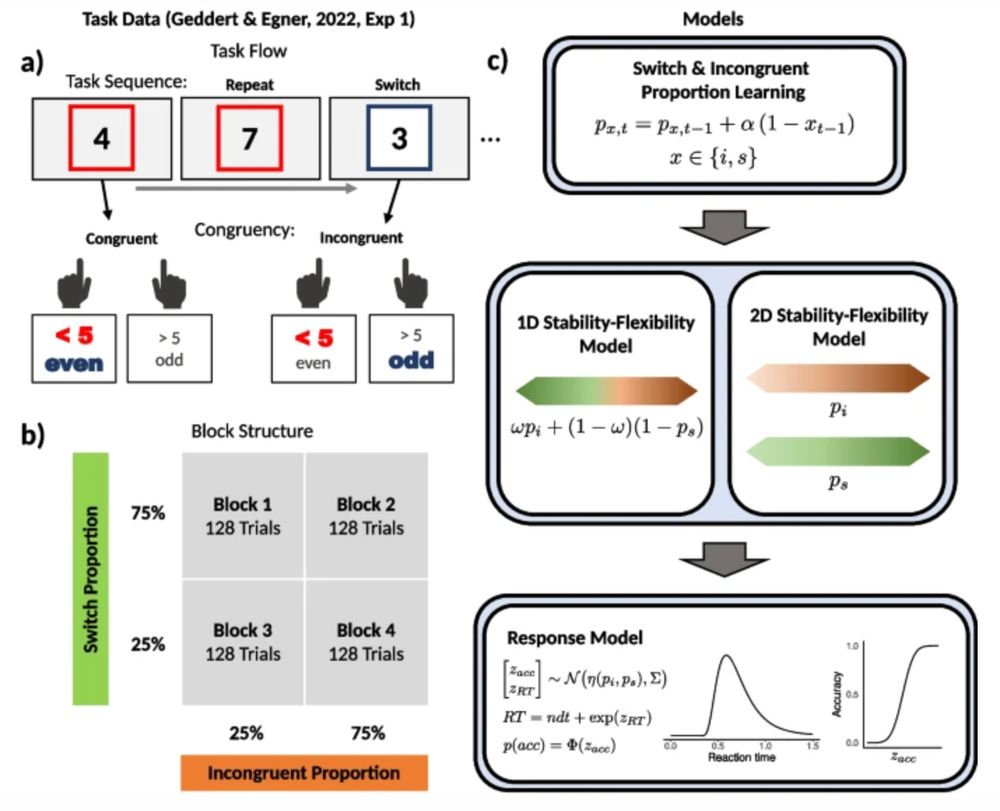Cognitive Control & Aging Lab https://sites.wustl.edu/ccalab/
More here!
artsci.washu.edu/ampersand/gr...



More here!
artsci.washu.edu/ampersand/gr...
psycnet.apa.org/record/2026-...
We show how proactive control declines while reactive control remains robust across the lifespan, using multiple measures of both in a novel Stroop paradigm. A very rich, open dataset for future modeling projects!
psycnet.apa.org/record/2026-...
We show how proactive control declines while reactive control remains robust across the lifespan, using multiple measures of both in a novel Stroop paradigm. A very rich, open dataset for future modeling projects!
Free read link: rdcu.be/epatc

Free read link: rdcu.be/epatc
We showed that people flexibly and automatically use environmental cues to regulate attention, even when unpredictable, attention-grabbing distractors hit from multiple senses. Disruption was short-lived, and control bounced back quickly!
📃 psycnet.apa.org/record/2025-...
We showed that people flexibly and automatically use environmental cues to regulate attention, even when unpredictable, attention-grabbing distractors hit from multiple senses. Disruption was short-lived, and control bounced back quickly!
📃 psycnet.apa.org/record/2025-...
First, Merve @mileritayar.bsky.social tests whether people place an effort cost on switching between cognitive control settings. We find that people avoid switching between focused and relaxed attentional states.
osf.io/preprints/os...
First, Merve @mileritayar.bsky.social tests whether people place an effort cost on switching between cognitive control settings. We find that people avoid switching between focused and relaxed attentional states.
osf.io/preprints/os...
doi.org/10.1037/xlm0...
doi.org/10.1037/xlm0...

